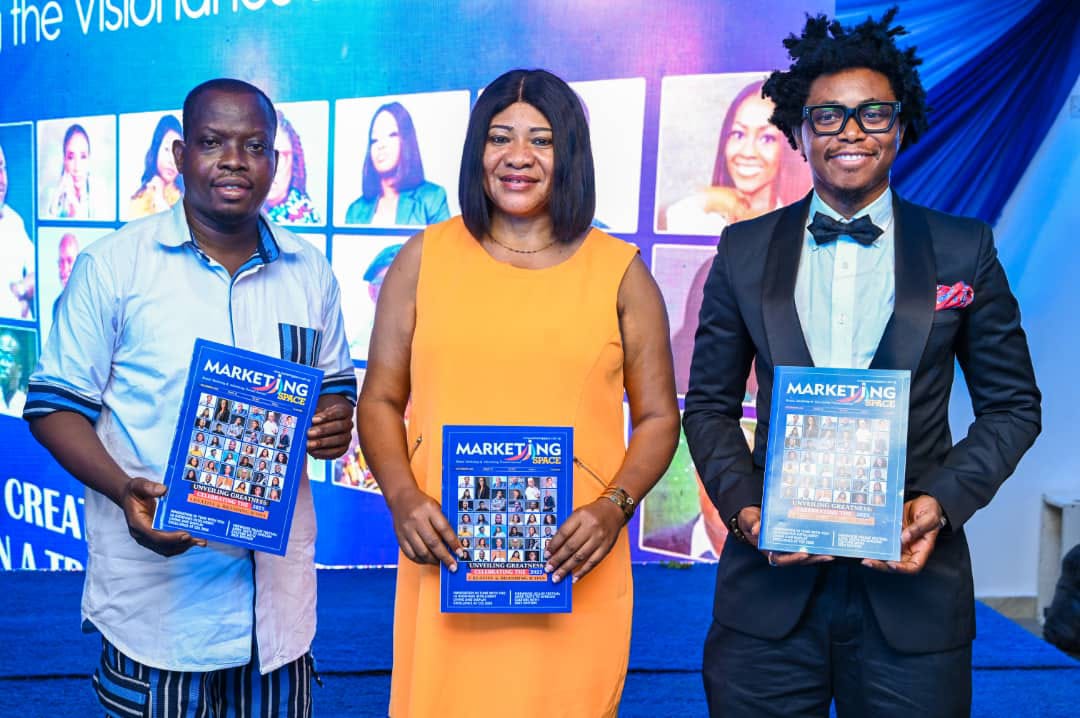As artificial intelligence (AI) continues to reshape the global workplace, Nigeria is emerging as a key player in adapting the technology to local needs, transforming how people work, connect, and engage across industries.
AI has continued to unlock new possibilities daily, as consumers are optimistic about its potential to enhance the way they work but are eager to see tangible real-world applications.
At the same time, business leaders envision a future where AI redefines productivity and personalization in the workplace.
This future focuses on bridging the gap between business growth and employee satisfaction, using AI to reshape and elevate the employee experience.
According to HP’s Work Relationship Index, which explores global attitudes toward work, only 28 per cent of knowledge workers feel they have a healthy relationship with work and two-thirds seek more personalised work experiences and preferred technologies.
With this data, AI is increasingly seen as the bridge between business growth and employee satisfaction.
As AI becomes increasingly integrated into our lives, its influence on the future of work will become more evident.
The HP report stated that by 2025, the world can anticipate several of these changes taking shape.
Personalisation is becoming a cornerstone of the future workplace as the HP study found that 87 per cent of knowledge workers would even trade a portion of their salary for a more tailored work experience.
Generative AI tools, such as Microsoft Copilot, are now allowing employees to communicate in natural language, automate repetitive tasks, and streamline document creation, saving time and improving productivity.
In multilingual countries like Nigeria, where communication across linguistic divides is crucial, AI has an even deeper impact.
Local startup Awari, in collaboration with the National Information Technology Development Agency (NITDA) and the National Centre for Artificial Intelligence and Robotics (NCAIR), has launched Nigeria’s first multilingual Large Language Model (LLM).
This AI tool can translate and transcribe several indigenous languages including Yoruba, Hausa, Igbo, Pidgin, and Ibibio—strengthening inclusivity and teamwork in diverse workplaces.
By bridging communication gaps in multilingual workplaces, it helps employees from diverse backgrounds collaborate more effectively.
The Nigerian government is laying down strong foundations for AI adoption.
Through the Nigerian AI Collective, NITDA is fostering collaboration among researchers, professionals, and industry stakeholders.
Simultaneously, the National Digital Economy Policy and Strategy (2020–2030) and the newly launched National Artificial Intelligence Strategy (NAIS) are guiding AI’s integration into the nation’s broader economic vision.
“AI is no longer a futuristic concept—it is a practical solution to real-world problems,” said a NITDA official, emphasising the technology’s potential to drive job creation and national productivity.
According to HP’s Work Relationship Index, knowledge workers (69%), business leaders (77%), and IT decision makers (76%) agree that a tailored work experience powered by AI improves overall job satisfaction.
AI tools have proven effective in simplifying work processes, enabling employees to focus on tasks that require their expertise and creativity. In this context, ai is not just a tool for business efficiency but also a key driver of job satisfaction.
The Nigerian government recognises AI’s potential to drive innovation and economic growth. The National Artificial Intelligence Strategy (NAIS), launched in 2024, lays the groundwork for widespread AI adoption.
The framework focuses on empowering businesses to unlock new opportunities, improve efficiency, and create jobs, particularly in sectors where AI can solve real-world challenges.
Video conferencing is being given an AI-powered refresh too. It’s now possible to feel like you’re in the same room as a colleague, even if they’re working on the other side of the world.
By enabling seamless and friction-free connections with advanced voice, video and sensor technology, AI meeting room solutions can deliver life-like experiences for all participants.
Real-time insights on room utilisation and issues monitoring also improve the user experience, making it more human and elevating the sense of presence and connectedness.
As AI adoption grows, so does concern over its energy demands. Industry projections suggest AI could consume as much energy as the Netherlands by 2027.
But innovations like AI-powered PCs are helping mitigate the impact. Devices with local AI processing capabilities, such as those equipped with Neural Processing Units (NPUs) and intelligent power management systems like HP’s Sure Sense 2.0, offer a sustainable alternative—cutting energy consumption while maintaining performance.






